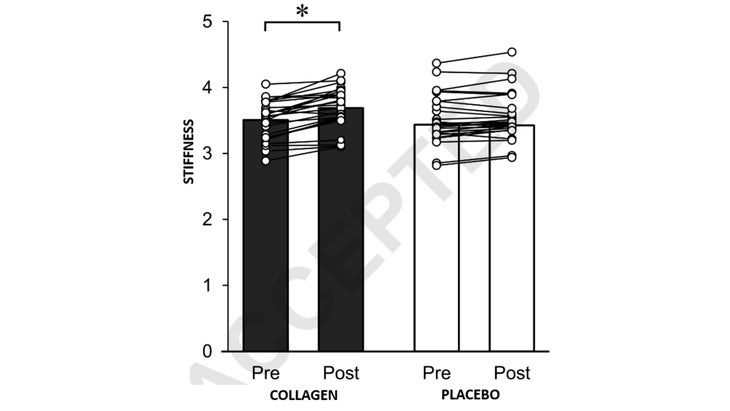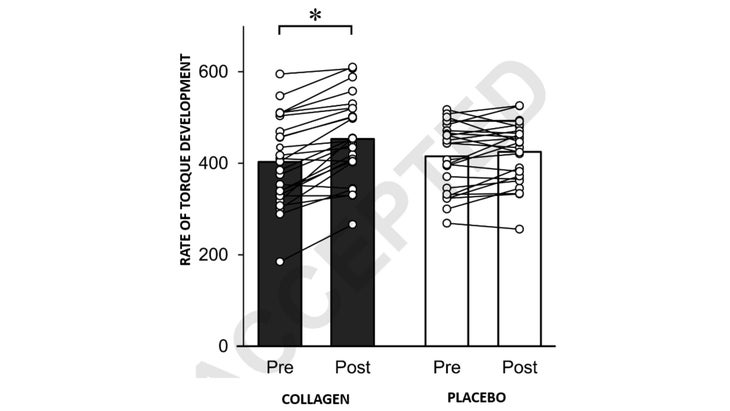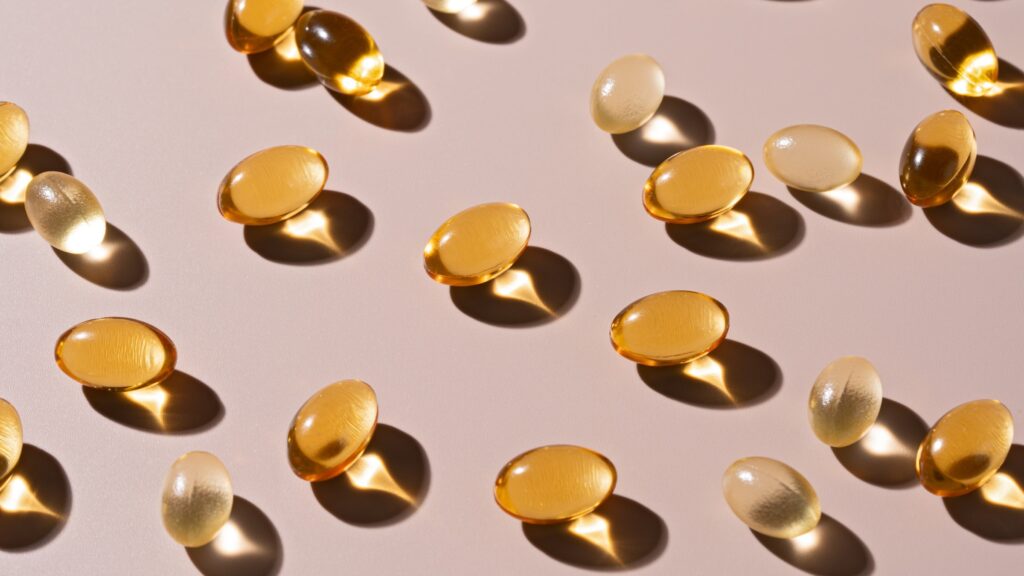If you buy through our links, we may earn an affiliate commission. This supports our mission to get more people active and outside.Learn about Outside Online’s affiliate link policy
A new study bolsters the claim that collagen supplements can help remodel your tendons and muscles
(Photo: MirageC/Getty)
Published August 11, 2025 03:23AM
It’s hard to claim that collagen is a “hot new supplement,” given that its health benefits were already being promoted by the twelfth-century Benedictine abbess Hildegard von Bingen. In its modern form, collagen supplements have been hyped for decades for purposes ranging from joint pain to hair thickness, despite a general lack of convincing evidence that they work. But interest has spiked over the past few years thanks to a burst of new research, and the latest study on the topic bolsters the claim that collagen might help build springier tendons and muscles to enhance explosive strength.
Why Collagen Might Help
I first wrote about the new wave of collagen research back in 2019, and followed up with more in 2023. The traditional view is that collagen-rich connective tissues such as tendons, ligaments, and cartilage are effectively inert, with very limited ability to grow or repair themselves after injury. What collagen proponents argue is that taking collagen supplements supplies the key building blocks—for example, an amino acid called proline—that trigger the synthesis of new connective tissue in the body.
The skeptical view is that collagen supplements are broken up into their constituent amino acids when you digest them, just like any other form of protein. As a result, they’re no more effective for building collagen in the body that, say, drinking a glass of milk (which also contains proline). There is, however, a bit of evidence that some collagen-specific peptides—short chains of amino acids—make it through the digestion process intact and show up in the bloodstream.
The evidence for these claims and counterclaims has been decidedly mixed. Part of the problem is that most of the studies use some combination of collagen and specific exercise protocols in an attempt to maximize the benefits, in the same way that protein supplements are most effective for building muscle when combined with strength training. This is a good idea, but it makes it tricky to interpret conflicting results. Did the study fail because collagen doesn’t work, or because the exercise protocol was too easy or too hard, or too weird?
The New Study
The latest study comes from researchers at Japan’s Juntendo University—working, it should be noted, with scientists from Morinaga & Co., which manufactures and sells health and sports “food products.” Their goal was to simplify the picture by studying the effects of 16 weeks of daily ten-gram collagen peptide supplements, with no other changes in exercise or diet. They recruited 50 volunteers, half of whom got the supplement while the other half got a placebo.
The specific hypothesis the researchers wanted to test was that collagen supplements would make tendons and muscles “stiffer,” in the sense that a stiff elastic band takes more force to stretch. This is what you’d expect if the collagen supplements trigger extra collagen formation in the tendons, which are primarily made of collagen fibers, and in the “extracellular matrix” that provides structural support to muscles.
Stiffer muscles and tendons should allow you to transfer force more efficiently from your muscles to your bones, making it possible to deliver force more rapidly. You’re not getting stronger, but you’re getting more explosive. This sort of explosive power is crucial both for athletic performance and for activities of daily living like getting out of a chair—and (as I wrote last fall) is also what we tend to lose most rapidly as we age.
What They Found
The results, which were published in Medicine & Science in Sports & Exercise, mostly support this hypothesis. They used MRI to measure the size of the Achilles tendon and part of the calf muscle; an ultrasound technique to measure the stiffness of the tendon and muscle; and a set of strength and power tests to see the functional effects of the supplementation.
Neither the tendon nor the muscle got any bigger, and the maximum calf strength didn’t change. But the elastic stiffness of both muscle and tendon increased in the collagen group, while staying unchanged in the placebo group. Here, for example, is the stiffness (as measured by how fast an ultrasound wave travels) for the collagen and placebo groups:

Perhaps more importantly, the collagen group also saw an increase in “rate of torque development,” which is a measure of explosive strength that quantifies how quickly you can apply force:

The final piece of the picture is that, for individual subjects, those who saw the biggest increases in muscle stiffness tended to see the biggest increases in explosive force. There wasn’t a clear connection between increases in tendon stiffness and increases in explosive force, but overall, the results support the chain of logic: more collagen -> stiffer muscles and tendons -> more explosive force.
What the Results Mean
You can make a much bigger argument on the basis of these results. Maybe you don’t care about tendons and explosive strength (though, honestly, you should). But if these results are true, then it suggests that there is something special about eating collagen—that it’s not just broken down into a potpourri of loose amino acids, and that it can trigger the remodelling of cartilage-based tissues. Maybe it really will thicken your hair; maybe it will repair your joints; maybe it will accelerate your recovery from ligament injuries.
These are big and as-yet-unproven claims, but if collagen works for tendon stiffness, then the other claims become a bit more plausible, at least in theory. I remain skeptical but intrigued. Given the mess of conflicting results produced by previous research, a single study funded by a supplement company—even with a robust sample size of 50—doesn’t settle the question either way. But it suggests that this is a line of research that’s very much worth pursuing, and that we should await further results with interest.
For more Sweat Science, join me on Threads and Facebook, sign up for the email newsletter, and check out my new book The Explorer’s Gene: Why We Seek Big Challenges, New Flavors, and the Blank Spots on the Map.


